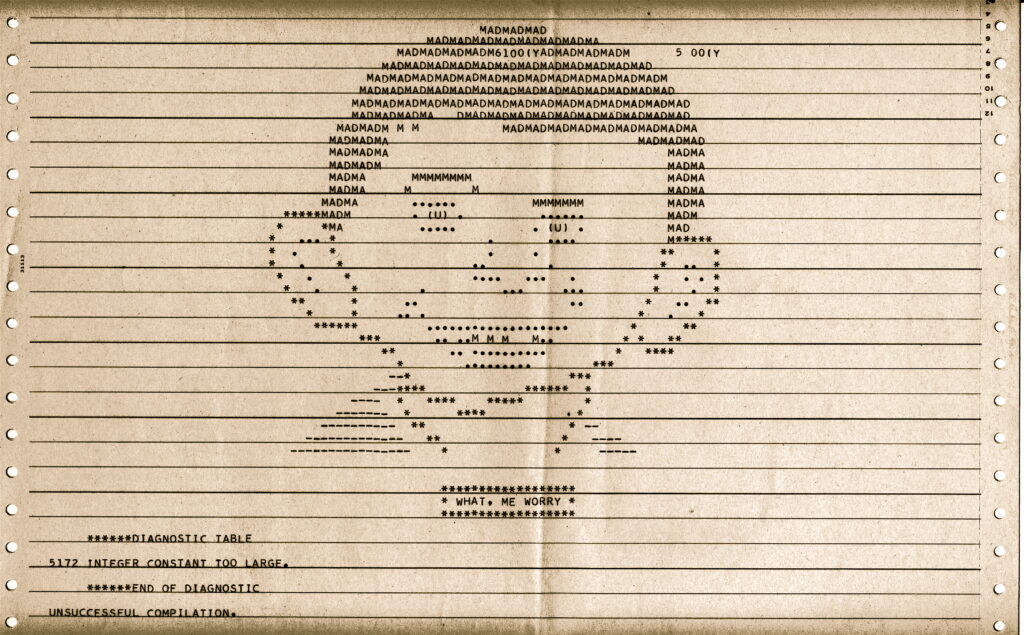
Larry Penner vouches that “the Democrats could run Mad magazine’s ‘What, Me Worry?’ Alfred E. Neuman for president and still carry the Empire State by a wide margin” (“True blue New York,” Queens Chronicle, August 27). That’s a harsh assessment … of Neuman. Unlike Democratic politicians in solidly blue states, or Republicans in their red-state counterparts, he had real rivals to contend with.
For decades, the dimwitted mascot of the irreverent humor institution risked losing customers to comparably foolish competitors, like Cracked magazine’s Sylvester P. Smythe and Sick magazine’s Huckleberry Fink. “Mad‘s Maddest Artist” Don Martin found gainful employment in becoming “Cracked‘s Crackedest Artist.” Fink’s “Why Try Harder?” is a more fitting slogan for political machines that have minimal incentive to serve their electors than the “What, Me Worry?” which obviously inspired it.
Cracked may have cracked jokes about how it had “a fan base primarily comprised of people who got to the store after MAD sold out.” Yet while it competed with Mad for the same pool of pocket money, customers who picked both, neither, yet another funnybook, or candy would get their choice. If they wound up wasting their time (and money), it would not be due to having to settle for a lesser-evil imposition.
Only reader loyalty could ensure the permanence of such perennial Mad features as the Fold-In or Spy vs. Spy (which long outlived the Cold War it originally satirized). Even a feature as mild as Dave Berg’s “The Lighter Side Of …” did more to keep up with the times than politicians who yearn for a return to the staidness of the 1950s (minus such upstarts as the early Mad to skewer it).
Alfred E. Neuman For President mock campaigns have always had self-deprecating slogans like “He’ll keep all his promises because he promises nothing!” and “At least he’s honest about his idiocy!” But moving more of the scope of social interaction to the realm of free association and voluntary choice — and not only, but especially, activities far more serious and consequential than gag magazines — would be a very smart thing to do.
New Yorker Joel Schlosberg is a contributing editor at The William Lloyd Garrison Center for Libertarian Advocacy Journalism.
PUBLICATION/CITATION HISTORY
- “Voters can’t get mad enough to get happy,” by Joel Schlosberg, Creston, Iowa News Advertiser, 09/02/20
- “Voters Can’t Get MAD Enough to Get Happy,” by Joel Schlosberg, CounterPunch, 09/03/20
- “Voters Can’t Get Mad Enough to Get Happy,” by Joel Schlosberg, Roundup, MT Record Tribune & Winnett Times, 09/09/20
- “Can’t get Mad enough to get happy,” by Joel Schlosberg, Greater Southwest News-Herald [Summit, IL], 09/11/20
- “Political control’s a joke,” by Joel Schlosberg, Queens Chronicle, 09/17/20
- “Voters Can’t Get Mad Enough to Get Happy,” by Joel Schlosberg, Ventura County, California Citizens Journal, 09/22/20
